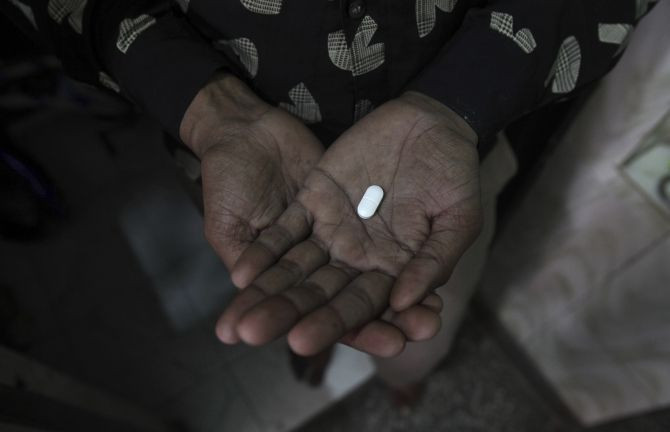Cancer Drug Fights Latent HIV

New research shows that a drug used to treat certain types of cancer can be used against HIV. The drug dislodges the dormant HIV in people infected with the virus.
Anti-AIDS drugs do not kill the dormant virus in the body and so people infected with the virus have relapses if they stop taking their medications.
Researchers conducted experiments to see if a drug called vorinostat can activate the dormant virus and then destroy it.
Preliminary lab tests showed that the drug was able to destroy the virus hidden in CD4+T cells (the kind of white blood cells that HIV uses to replicate itself in the host body).
Later, tests done on human subjects also showed the drug's efficacy in killing the virus. Eight men infected with HIV were given the drug. These men were on antiretroviral therapy. Researchers measured the levels of active HIV in the body before and after the use of the drug.
Results showed that, the level of active HIV was up by over 4 times in people who were given the drug showing that the drug was activating the virus
According to researchers, unmasking the dormant virus could be the first step in finding a cure for the disease.
"This work provides compelling evidence for a new strategy to directly attack and eradicate latent HIV infection," said David Margolis, MD, professor of medicine, microbiology and immunology, and epidemiology at the University of North Carolina at Chapel Hill and lead author of the study.
Vorinostat, a deacetylase inhibitor, is used to treat some types of lymphoma. Vorinostat may have some toxic effects and the researchers stressed this was merely an early indication of feasibility that had to be explored further.
Using antiretroviral drugs for a long time may lead to the virus getting resistant to the drugs leading to many new cases of HIV that can't be treated. Targeting the dormant virus could be a new way to tackle the disease.
"Long-term, widespread use of anti-retroviral has personal and public health consequences, including side effects, financial costs, and community resistance. We must seek other ways to end the epidemic, and this research provides new hope for a strategy to eradicate HIV completely from the body," said Margolis.
The study was published in the journal Nature.



























